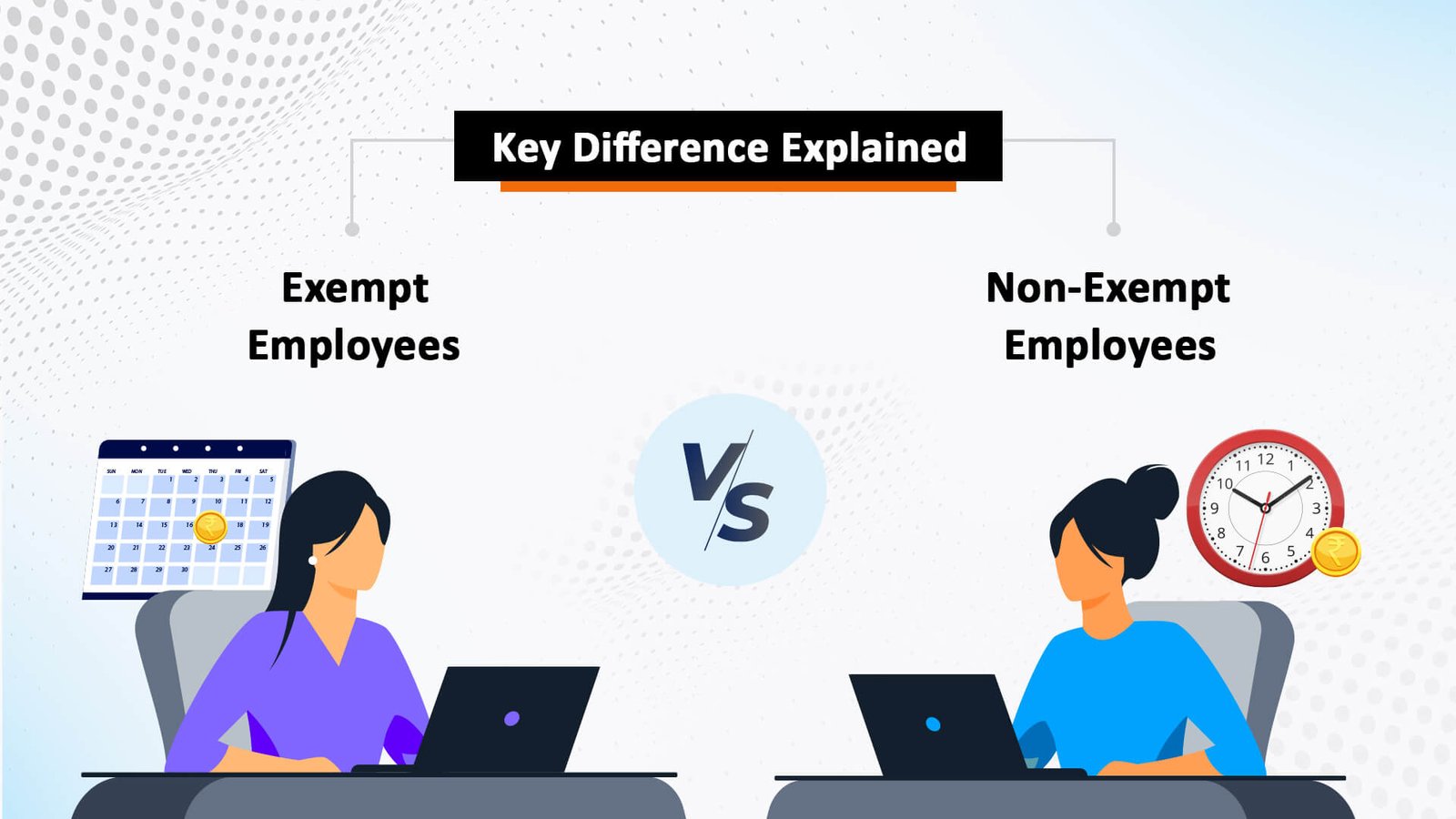The Labor laws in Tennessee are protected by employment laws, which are designed to help protect laborers and employees and to make certain that they are afforded fair treatment within a job setting. Tennessee is a state that is generally friendly to business and has relatively little regulation of the employer-employee relationship. However, employers must still be in strict accordance with all Tennessee labor laws on salaried employees so as not to face fines or an unfair work environment.
So in the US, there are both federal and state employment laws that employers must follow. These Tennessee labor laws establish a framework that prevents abuse and gives employees the protections necessary to work safely and productively.
Standard Working Hours And Wages
The Tennessee Department of Labor and Workforce Development enforces workplace wage and hour laws. These guidelines are listed in the Tennessee Wage and Hour Act and the Tennessee Child Labor Act in order to ensure that workers are paid appropriately and promptly.
On top of these deadlines, each employer is also required to designate regular paydays and post notices.
Minimum Wages
Tennessee is one of 14 states that has no state minimum wage law. Instead, employers must adhere to the minimum wage provisions under FLSA, which imposes the hourly wage rate for non-exempt workers at $7.25. The vast majority of private-sector employees are covered, although there are some exemptions.
The FLSA exempts the following types of employees from minimum wage requirements:
Exempt executive, administrative, and professional employees with salaries above the threshold.
- Certain agricultural workers.
- Tipped employees.
- Outside sales employees.
- Some student employees.
Overtime Laws
Tennessee labor laws overtime in Tennessee are based on the Fair Labor Standards Act (FLSA) because there are no unique state-provided overtime guidelines in Tennessee. Employees must be paid at a rate of 1.5 times the regular rate of pay for time worked in excess of 40 hours in a workweek of seven consecutive days, according to federal regulations.
Tipped Minimum Wages
Tennessee does not set its own tipped minimum wage, so employers must follow federal rules under the Fair Labor Standards Act (FLSA). This means tipped employees can be paid as little as $2.13 per hour, as long as their tips bring their total earnings up to at least the federal minimum wage of $7.25 per hour.
Meal And Rest Hours
Tennessee labor laws breaks offer several lunch break and rest period laws. In this case, lunch break is not mandatory; employers have their discretion to provide meal breaks.
This break cannot be set during the first hour of work and does not need to be paid as long as the worker is completely free from all work duties.
TN labor laws for 12-hour shifts may not require more breaks; it may not be necessary to provide an undisturbed 30-minute meal break.
Employee Compensation & Laws
The Tennessee labor laws have employee compensation rules that every employee and employer needs to follow.
Paycheck Laws
When the employment ends, either because he quits or is laid off, state law provides that a former employee has only two options about how an employer must pay his final paycheck.
Employers can give an employee’s final paycheck only if the employee failed to return company property, such as uniforms or tools, and only if the employee had signed a prior agreement or policy allowing such a deduction.
Employees are also supposed to receive final paychecks for any accrued but unused vacation time or similar paid leave, but only if the company policy or employment agreement dictates that these benefits are payable upon separation.
Employee Compensation
In most cases, employees must report injuries within 15 days (not business days), although it is best to do so in writing. Employers are required to give the injured worker a Choice of Physicians form (Form C-42) within 24 hours of notification and notify their insurance carrier of the injury. Tennessee legislation also prohibits an employer from firing an employee who reports a workplace injury and mandates that an employer is obligated to post a Workers’ Compensation notice informing workers of their rights.
In Tennessee, the program is administered by the Tennessee Bureau of Workers’ Compensation, and the Mediation and Ombudsman Services of Tennessee (MOST) assists in settling disputes, especially when claims are denied. Workers who disagree with a decision can file a Petition for Benefit Determination up to 12 months after their injury or the last benefit received. If disputes remain, matters may be escalated to the Court of Workers’ Compensation Claims and then to the Workers’ Compensation Appeals Board.
Leave Laws
| Leave Type | Details |
| Family & Medical Leave (FMLA) | Applies to employers with 50 or more employees. Provides for up to 12 weeks of unpaid leave because of illness, birth of a child, adoption, or to take care of a sick family member. |
| Vacation Leave | Employers are not obliged to provide vacation benefits. If they do, the terms must be included in the contract of employment. |
| Military Leave | Under USERRA, employees must not face any discrimination due to their military service. Public employees are eligible for 20 paid workdays each year. |
| Voting Leave | Employees are entitled to up to 3 paid hours if they lack this time outside their normal working hours. Employees are required to inform their employers by noon the day before. |
| Jury Duty Leave | If the number of employees is more than 5, employers are responsible for paying jury service. Employees cannot lose their jobs or be sanctioned for jury duty if proper notice has been given. |
| Holiday Leave | The legislation does not require private employers to provide paid or unpaid holidays. There is no requirement for workers to be paid extra for work. |
| Pregnancy Disability Leave | As no statewide legislation is in place, the Tennessee Pregnant Workers Fairness Act requires employers to receive assistance; the Tennessee Family Leave Act allows up to 4 months of unpaid time off after childbirth. |
| Veterans Day Leave | Upon one month’s notice to current or former members of the armed forces who have been called up to serve. Other employees and employees required for public health are exempt. |
| Paid Sick Leave | Tennessee legislation does not require this. If applicable, employees may take unpaid sick leave under the federal Family and Medical Leave Act. |
Child Labor Laws
As per the Tennessee labor laws for minors, it is illegal for an employer to hire anyone under the age of 14, with some exceptions. These exceptions include:
Non-hazardous duties while working for their own parent or legal guardian.
- Jobs in agriculture.
- Employment in the sale or delivery of newspapers.
- Self-employment by the minor.
- A job playing music or performing.
Students 14 and 15 may not be employed at the expense of the school, health, or general welfare.
Employers hiring minors must also:
- Establish the minor’s age through documents such as a birth certificate or passport.
- Post a child labour law notice at work to let employees know and be in compliance.
Taxes in Tennessee
Tennessee is unique in that it does not impose an individual income tax on its residents. However, the state does levy taxes in other areas:
- Corporate Income Tax: 6.5% on business profits.
- Gross Receipts Tax: Applied to business revenue.
- Sales Tax: 7% state rate, with an average combined state and local rate of 9.55%.
- Property Tax: Effective rate of 0.48% on owner-occupied homes.
Overall, Tennessee’s tax structure favors individuals with no income tax while generating revenue through business, sales, and property taxes.
Don’t Struggle With Accurate Paystub Generation Now! – Create It With Us
Creating authentic-looking pay stubs can be a challenge for employers and business owners as well as self-employed individuals. With so many little errors, a missed tax deduction, miscalculation of overtime, a benefit oversight, there are risks for everything from compliance trouble to employee grievances to penalties. It takes too long to do them by hand, you probably made some errors, and it’s guaranteed to stress you out, wondering if everything is really going to add up.
That’s where our free paystub generator comes in. In a few clicks, you can enter your information and generate a professional, appealing, and precise paystub. Stub Creator does the work so you don’t have to, saving both time and money and allowing you to create a pain-free payroll item while guaranteeing accuracy and compliance for every stub created.
Quit wasting time trying to do the math in your head and just begin streamlining your payroll and START SAVING TODAY!
Curious Minds Also Ask
What are the labor laws in Tennessee?
Tennessee labor laws cover wages, hours, child labor, workers’ compensation, leave, and workplace safety, following federal laws like FLSA.
How many hours can you work without a break in Tennessee?
Employees working 6 consecutive hours must be given a 30-minute unpaid meal break; paid breaks are not required.
What rights do I have as an employee in Tennessee?
Employees have rights to minimum wage, overtime (if non-exempt), safe working conditions, workers’ compensation, and leave under federal laws like FMLA and USERRA.
Can you be fired without warning in Tennessee?
Yes, Tennessee is an at-will employment state, so employers can terminate employees without warning unless prohibited by contract or anti-discrimination law.
What qualifies as wrongful termination in TN?
Wrongful termination occurs if an employee is fired due to discrimination, retaliation, reporting workplace injury, or violation of a contract or public policy.
How many sick days are required by law in TN?
Tennessee does not require employers to provide paid sick leave; unpaid leave may be available under FMLA for eligible employees.
How many days can you legally work in a row in TN?
Tennessee does not limit consecutive workdays; overtime rules still apply for hours over 40 per week if non-exempt.
Is it illegal to work off the clock in Tennessee?
Yes, employers must pay employees for all hours worked, including overtime; working off the clock violates wage laws under FLSA.
What is the WARN Act in Tennessee?
The WARN Act requires employers with 100+ employees to give 60 days’ notice for mass layoffs or plant closures; Tennessee follows the federal WARN Act.
Is holiday pay mandatory in Tennessee?
No, private employers are not required to provide holiday pay in Tennessee.
Is a termination letter required in Tennessee?
No, termination letters are not legally required.
Is it illegal to sleep at a rest stop in Tennessee?
Sleeping at public rest stops may be restricted by local ordinances; no statewide law explicitly bans it.
How many days can you work without a day off in Tennessee?
Tennessee does not limit consecutive workdays; overtime rules still apply.
Can I waive my lunch break in Tennessee?
Yes, employees can voluntarily waive unpaid meal breaks if the job allows it.
Can you sue your employer in Tennessee?
Yes, employees can sue for wage violations, discrimination, wrongful termination, workers’ compensation claims, or other statutory rights violations.
How much is unemployment in TN?
Unemployment benefits in Tennessee range from $45 to $275 per week, depending on previous earnings.
Can you sleep in your car at Walmart in Tennessee?
Sleeping in a Walmart parking lot is generally allowed with store permission but is subject to local rules.
Is it illegal to live in your vehicle in Tennessee?
Living in a vehicle is not banned statewide, but local ordinances may prohibit it in some areas.
Is it legal to wakeboard at night in TN?
Wakeboarding at night is subject to local waterway regulations and safety laws.
What are my rights as an employee in Tennessee?
Employees have rights to minimum wage, overtime, safe working conditions, workers’ compensation, FMLA leave, military leave, and protection from discrimination and retaliation.
What is the Tennessee minimum wage in 2025?
The minimum wage in Tennessee in 2025 is $7.25 per hour; tipped employees may be paid as little as $2.13 per hour if tips bring them to minimum wage.
FAQ's
What is the minimum wage in Tennessee in 2025?
+
Tennessee follows the federal minimum wage, which is $7.25 per hour. As of 2025, there has been no state-specific increase, so employers must comply with the federal rate unless higher local or contractual wages apply.
Are employers in Tennessee required to provide paid sick leave?
+
Tennessee law does not mandate paid sick leave. However, employers must follow federal laws like the Family and Medical Leave Act (FMLA) for eligible employees, and some employers may offer paid sick leave as part of their benefits.
Does Tennessee have “right-to-work” laws in 2025?
+
Yes. Tennessee is a right-to-work state, meaning employees cannot be forced to join a union or pay union dues as a condition of employment.
What are the overtime laws in Tennessee?
+
Overtime pay in Tennessee follows federal Fair Labor Standards Act (FLSA) rules. Employees working more than 40 hours in a workweek must be paid at least 1.5 times their regular hourly rate, unless they qualify for an exemption.





